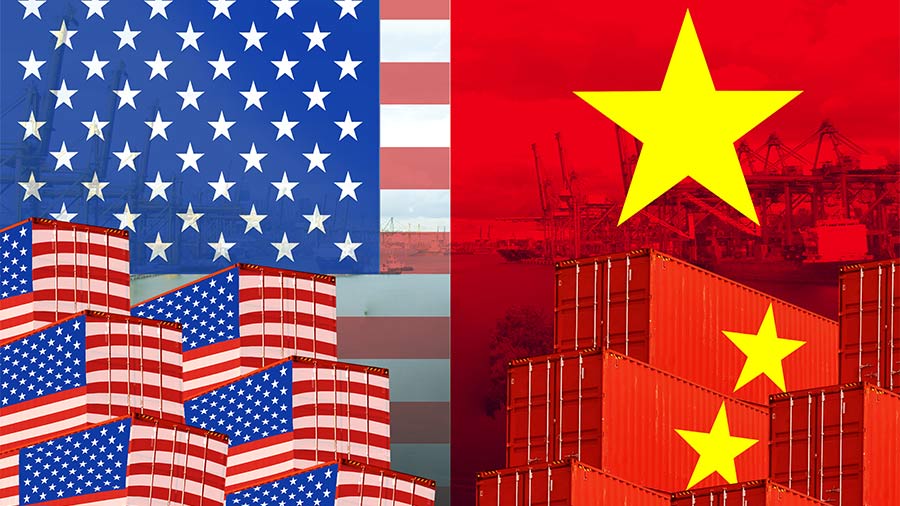China and Hong Kong Increase Investment in Vietnam
HANOI – Vietnam’s Department of Foreign Investment (DFI) has reported that, in the first five months of this year, the country saw a steep rise in foreign direct investment (FDI) capital from Hong Kong and China.
Thirty-eight countries and territories invested in Vietnam between January and May. Hong Kong contributed US$630 million in newly registered FDI, making them the second largest investor into Vietnam, and accounting for 11.5 percent of total investment into the country. Hong Kong’s FDI was a fourfold increase over its investment during the same period last year.
 RELATED: Dezan Shira & Associates’ Pre-Investment, Market Entry Strategy Advisory Services
RELATED: Dezan Shira & Associates’ Pre-Investment, Market Entry Strategy Advisory Services
China ranks as the seventh largest foreign investor during the same period, with a total investment of US$300 million – a threefold increase year on year.
Made in Vietnam
According to the DFI, investment into the textiles and garment industry rose for the first time since mid-2012, with large-scale projects seeing investment from businesses located in China, Hong Kong and Taiwan.
RELATED: Foreign Garment and Textile Manufacturers Weave Their Way to Success in Vietnam
An example of a key foreign investment can be seen in the decision of the Economic Zone Management Board of Long An province to grant an investment certificate for Hong Kong’s Huafu Company Ltd. to invest US$136 million in a textile and dying plant. This project is expected to break ground next year. The plant will occupy 20 hectares and manufacture 300,000 tons of fiber and dye 20,000 tons of cotton annually.
Additionally, there are a number of Chinese and Hong Kong textile and garment companies already present in Vietnam who have announced plans to expand their businesses and investments.
The Trans-Pacific Partnership (TPP) is also spurring the growth in investments for the textile industry. Out of the 12 countries negotiating the deal, Vietnam is predicted to benefit the most due to a clause that would cut tariffs on textiles and apparel, which are among the nation’s top exports.
RELATED: Vietnam and the TPP Traverse Rough Seas Towards Promised Land
To take advantage of the forthcoming tax reductions, foreign companies are shifting their factories to Vietnam. Chinese investors are boosting their investment in Vietnam because they want tariff-free access to the United States. Additionally, Vietnam boasts cheap abundant labor and is improving its ease of doing business.
Building Vietnam
Besides the textile and garment industry, China and Hong Kong investors have also increased their level of investment in Vietnam’s real estate market.
Vietnam was recently names by U.S.-based Association of Foreign Investors in Real Estate as the fourth emerging marketing in the world for property investments. A proposed law to allow foreign ownership of real estate is carefully being studied by the Vietnamese government in order to further boost the local property market.
Two key investment projects are the US$200 million apartment building project in Binh Thanh District in HCMC by the Hong Kong-based Sunwah Group, and China’s Texhong Group’s US$215 million project to develop infrastructure in Quang Ning province’s 660-hectare Hai Ha Industrial Park.
Asia Briefing Ltd. is a subsidiary of Dezan Shira & Associates. Dezan Shira is a specialist foreign direct investment practice, providing corporate establishment, business advisory, tax advisory and compliance, accounting, payroll, due diligence and financial review services to multinationals investing in China, Hong Kong, India, Vietnam, Singapore and the rest of ASEAN. For further information, please email vietnam@dezshira.com or visit www.dezshira.com.
Stay up to date with the latest business and investment trends in Asia by subscribing to our complimentary update service featuring news, commentary and regulatory insight.
Related Reading
 Developing Your Sourcing Strategy for Vietnam
Developing Your Sourcing Strategy for Vietnam
In this issue of Vietnam Briefing Magazine, we outline the various sourcing models available for foreign investors – representative offices, service companies and trading companies – and discuss how to decide which structure best suits the sourcing needs of your business.
 An Introduction to Doing Business in Vietnam 2014 (Second Edition)
An Introduction to Doing Business in Vietnam 2014 (Second Edition)
An Introduction to Doing Business in Vietnam 2014 (Second Edition) provides readers with an overview of the fundamentals of investing and conducting business in Vietnam. Compiled by Dezan Shira & Associates, a specialist foreign direct investment practice, this guide explains the basics of company establishment, annual compliance, taxation, human resources, payroll, and social insurance in the country.
 Expanding Your China Business to India and Vietnam
Expanding Your China Business to India and Vietnam
In this issue of Asia Briefing Magazine, we discuss why China is no longer the only solution for export-driven businesses, and how the evolution of trade in Asia is determining that locations such as Vietnam and India represent competitive alternatives. With that in mind, we examine the common purposes as well as the pros and cons of the various market entry vehicles available for foreign investors interested in Vietnam and India. We also examine the advantages of using Hong Kong and Singapore as corporate bases to reach out to Asia’s emerging markets. Finally, we comment on how the proposed Trans-Pacific Partnership will affect both China-based and Vietnam-based manufacturers.
Vietnam’s Real Estate Market Shows Signs of Recovery
Ho Chi Minh City Cracks Down on Work Permits
Vietnam to Pursue Draft Amendments to Business Laws
- Previous Article Vietnam’s Real Estate Market Shows Signs of Recovery
- Next Article Foreign Competition Shakes Up Vietnam’s E-Commerce Market
































